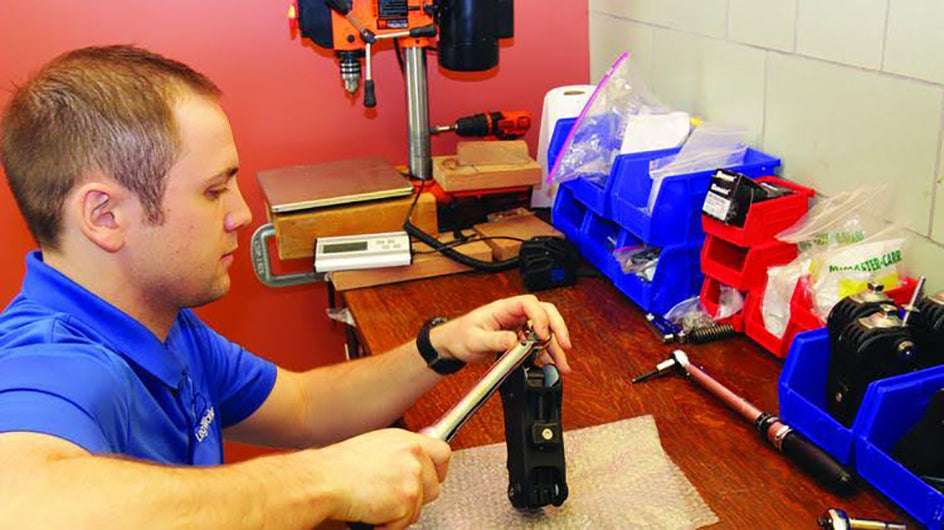
The following article was published by Dan Miner on April 23, 2018 in Buffalo Business First. View the original article.
"A social enterprise startup company has relocated its base of operations from San Francisco to Buffalo, seeking geographic proximity to its research group in Toronto and a more affordable cost of living.
LegWorks is operating out of a ground floor office in The Frizlen Group’s BuffaLofts development on Lafayette Avenue in Buffalo. The company has developed a portfolio of affordable, high-quality prosthetics that it has been selling for more than a year, with a twofold mission:
• To introduce a high-functioning alternative to extremely expensive computerized and hydraulic prosthetics in the United States and other developed markets.
• To help solve the extreme issues with access and affordability in Third World countries, where more than 90 percent of people who need prosthetics simply don’t have access to a device.
“In the last six months or so, we’ve started forming partnerships with some really large organizations, which is giving us the freedom to take the next steps in our business,” said Brandon Burke, director of partnership development.
Invest Buffalo Niagara helped recruit LegWorks and manage its introduction to the Western New York community.
“From our very first phone call with the LegWorks leadership team, we knew this was a company we needed to have in Buffalo," said Alan Rosenhoch, Invest Buffalo Niagara's director of business development. "Their mission and needs aligned perfectly with what our region has to offer."
The company’s technology was initially developed by Toronto-based researcher Jan Andrysek of the Bloorview Research Institute, and was formed as a commercial entity in 2014 with co-founders David Green, who’d pioneered a similar model with affordable lenses and hearing devices; Emily Lutyens, who joined as CEO while she was finishing her MBA from UC Berkeley; and Burke.
Burke, who lost his leg above the knee when he was 18 years old, had already been talking to Green about the issue of prosthetic access and cost when they were connected to Andrysek’s research. Together, they helped develop and test devices which outperform many hydraulic legs.
LegWorks formally entered the market in early 2016 and has been working with various early adopters ever since, but Burke said it will be an incremental process carving out a niche in an industry dominated by a select group of massive prosthetic corporations. He said LegWorks has a good relationship with key customers and expects a significant recurring business as they accept the LegWorks product portfolio, which is fully covered by most health insurance plans.
In the meantime, the company has served more than 500 patients in developing countries over the past three years, including a 57-patient project in Tanzania and an 80-patient project in Ghana.
Burke and two newly hired associates now work in LegWorks’ Buffalo office while the company embarks on some new initiatives this year, including a financing round that will support its growth and the introduction of a pediatric product, which Burke said is also a massively underserved market in prosthetics.
LegWorks will be introduced to the startup community in a few different venues in May. It has been selected to pitch at the Bright Buffalo Niagara forum on May 2 and the Western New York Venture Association on May 9."
